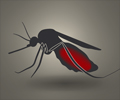The study identified two additional biological challenges in the control of malaria: resistance to drugs and resistance to diagnostics by the parasite.

Evidence for a role of Anopheles stephensi in the spread of drug and diagnosis-resistant malaria in Africa
Go to source). Malaria is caused by a parasite which is spread by the bite of blood-sucking mosquitoes. According to the WHO, there were an estimated 247 million cases of malaria worldwide in 2021 with over 600,000 deaths, mostly in Africa. Children under 5 accounted for about 80% of all malaria deaths in the region.
Rapid Spread of Asian Malaria Mosquito Anopheles stephensi
Following its first detection in Djibouti in 2012, the Asian malaria mosquito Anopheles stephensi spread to the Horn of Africa (Ethiopia, Sudan, Somalia, and Eritrea) and beyond (Yemen, Nigeria, Kenya, and Ghana) at a speed unknown before for similar species.‘The new evidence has the potential to alter the outlook for malaria control and elimination, especially in the context of any future intervention that overlooks the existence of this invasive species. #malaria #mosquitodisease’





People in households/dormitories with An. stephensi positivity had a 270% higher risk of malaria infection than those in households/dormitories where An. stephensi was not detected. In addition, two other biological threats for the control of malaria were identified: drug resistance and diagnostic resistance of the parasite.
Dr. Luigi Sedda from the Lancaster Ecology and Epidemiology Group at Lancaster University Medical School is a joint first author on the paper which is published in Nature Medicine.
He said: “‘This is a very important finding. The mosquito that has spread in the Horn of Africa from Asia drove a major urban malaria outbreak in Ethiopia. An. stephensi is posing important public health concerns due to the increase in geographical presence, the capacity to persist throughout the year and to resist current insecticides, and to transmit drug and diagnostic resistant parasites.”
The capacity of Anopheles stephensi to use manmade water storage containers which are abundant in rapidly expanding African urban settings, coupled with its unique ecology, behavioral plasticity and resistance to major insecticides, makes it unamenable to conventional mosquito control tools.
Advertisement
Reference:
- Evidence for a role of Anopheles stephensi in the spread of drug and diagnosis-resistant malaria in Africa - (https://www.nature.com/articles/s41591-023-02641-9)
Source-Eurekalert













